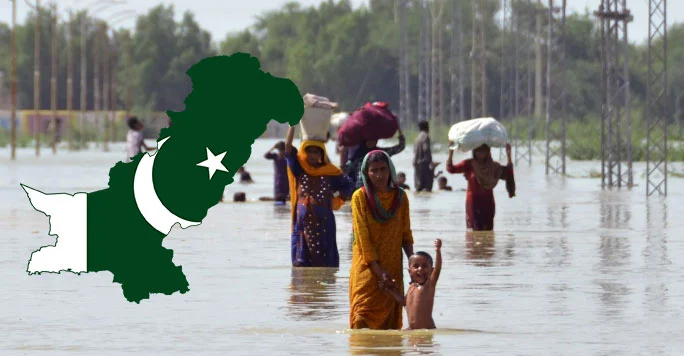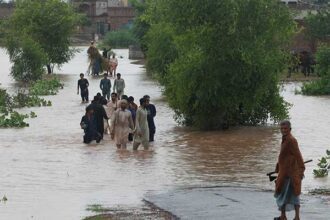According to the Climate Risk Index 2025 published by Germanwatch, Pakistan was ranked as the most climate-affected country in the world in 2022. Catastrophic floods displaced over 8.1 million people, impacted more than 33 million lives, and damaged over 2.2 million homes.
The report reveals that Pakistan experienced the highest number of internal displacements due to natural disasters in 2022. The unprecedented floods killed over 1,700 people and inflicted an estimated $15 billion in economic damage, submerging 10% of the country’s land area and prompting a nationwide emergency.
Experts attribute the severity of these events to climate change, which intensified the monsoon rains by up to 50% and made the March–May 2022 heatwave 30 times more likely. During the heatwave, Nawabshah recorded a temperature of 49.5°C, causing immense stress on agriculture, water reserves, and public health.
The floods disproportionately affected women and vulnerable communities. The destruction of agricultural livelihoods pushed many women into extreme poverty, and reports of gender-based violence in refugee camps increased. Waterborne diseases surged, particularly affecting children and women’s health.
International bodies, including the United Nations, have labeled this crisis a matter of climate justice, as Pakistan contributes less than 1% to global greenhouse gas emissions, yet bears some of the worst consequences.
The Climate Risk Index stresses the urgent need for climate finance and global cooperation, especially for countries like Pakistan. Without decisive global action, such disasters may become the “new normal”, threatening lives not just in developing countries, but across the world.














